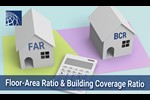Selling property in Japan as a foreigner

In Japan, foreigners can buy and sell real estate, and the procedures and taxes imposed on such selling and buying are not very different from those of Japanese people. In recent years, the number of real estate sales transactions by foreigners, including overseas investors, has been increasing, so it is possible for us to think that there may be many foreign people who are considering selling their own real estate in Japan. We will here explain some tips that foreigners (residents or non-residents in Japan) should understand in advance when selling real estate in Japan.
If you want to know the basic flow, various expenses, and the taxes related to the sale of real estate, we can provide you a detailed explanation in "Guide to Selling Properties in Japan". So please click here.
1. Review the list of the necessary documents and prepare them in advance

A sale of real estate requires various documents, and an officially registered seal and an original copy of seal registration certificate are necessary when applying for registration of ownership transfer of real estate. In Japan, instead of signing important documents such as contracts, affixing a registered seal and submitting a seal certificate are customarily practiced together. But foreigners who are not residing in Japan may not have these, so please note that alternative documents are required in such cases.
If you live in Japan and have not yet registered your seal, we recommend that you create a seal and register it.
For the details on Japanese seals, please see “Hanko/Inkan: A Guide to the World of Japanese Signature Seals”.
What is registration of ownership transfer?
When the sale of real estate is completed, registration to transfer ownership of the real estate from a seller to a buyer shall be applied. Usually, such application works are proceeded by a judicial scrivener. Upon such application procedure, the seller, who is the registered holder of ownership, shall affix his/her registered seal (Jitsuin) to the application form (or a power of attorney) and attach an original copy of seal registration certificate in order to prove that the application for registration is based on the seller’s true intention and not a false one.
Documents to be prepared by foreigners who are non-resident in Japan
In real estate sales transactions, "affidavits" are used as a document to certify the signature of a non-resident foreigner and to prove his/her address.
What is an affidavit?

An affidavit is a certificate that the writer of private deeds (private documents signed or with seal affixed by the writer) has sworn in front of a notary public that the description of the documents is true, and that has given a signature and affixed a seal on and has obtained from the notary public.
How to obtain it
You are requested to ask Certification Authority such as a notary public in your country to certify it. You may be able to obtain certification from the Consular Section of the Embassy of your country in Japan. But sometimes you may not be able to obtain certification in Japan, so we recommend that you obtain an affidavit in your home country in advance when coming to Japan to sell real estate.
An affidavit is an important document that is essential for the sale of real estate and must provide the necessary information without omission. About where you can obtain affidavits or how to make a document format, it is also possible for us to support you from a judicial scrivener (bilingual in English and Japanese) who is affiliated with PLAZA HOMES.
When the seller’s (registered holder’s) address is different from his/her current address

The register of real estate lists the name and address of the owner (registered holder), the date on which the real estate was acquired, etc. When registering the transfer of ownership due to the sale of real estate, and if the address listed in the register is different from the address of your current residence, you shall need a document to certify the history of your previous address changes.
【Case of Japanese nationals and foreigners living in Japan】
If you moved once from the registered address, or if you moved within the same municipality even though you moved more than once, you shall only need “Certificate of Residence”. If you moved more than once beyond the same municipality, you shall obtain “Record of Deletion of Certificate of Residence” or “Certified Copy of Supplementary Family Register” in the municipality of your permanent domicile.
【Case of foreigners not residing in Japan】
You shall prepare a document specifying the history of your address changes and ask a notary public to certify it as an affidavit.
【When you lived in Japan and purchased real estate before July 8, 2012, and then changed your address】
If you fall under this category, you need to be careful because you may need the different document from the above to certify the history of your address changes. To prove the history of address changes in Japan before July 8, 2012, you are requested to obtain a copy of “alien registration cards” instead of Certificate of Residence.
In Japan, the Alien Registration Act was abolished on July 9, 2012, and the Basic Resident Register Act for foreign residents was launched, and then Certificate of Residence started to be issued to foreigners as well as Japanese. As a result, the " Certificate of entry in alien registration cards ", which was considered to be a proof of personal information including the history of address changes, is no longer issued. Instead of that, you need to obtain a copy of “alien registration cards” managed by Immigration Services Agency of Japan to prove the history of the address change, because your personal information before July 8, 2012, is not listed on the “Certificate of Residence” in the current system.
A copy of “alien registration cards” can be obtained by making a request for disclosure which is specified by Immigration Services Agency of Japan.
The below is the matters listed on the website of Immigration Services Agency of Japan. Since only the person himself/herself can request disclosure basically, and the period required for disclosure shall be within 30 days from the request, please give yourself enough time to prepare in time with a sale of real estate. If you are currently living overseas (if you cannot request for disclosure due to unavoidable circumstances), please contact PLAZA HOMES for support of your obtaining it.
About Requests for disclosure of alien registration cards, on the website of Immigration Services Agency of Japan
Requests for disclosure of alien registration cards | Immigration Services Agency of Japan (isa.go.jp)
・Those who can request disclosure
The personal information recorded in the alien registration card of:
(1) The individual whose information is recorded; or
(2) If the requester is a minor or an adult ward, their legal representative (someone with parental authority or the guardian of an adult)
Only those who fall under (1) or (2) above may request disclosures.
Requests from voluntary representatives will not be honored.
・Required period for disclosure decision
By law, requests for disclosure must be addressed within 30 days from the date of their submission.
However, the actual time required to process a request varies on a case-by-case basis.
2. Non-residents in Japan may bear withholding tax

When a nonresident or foreign corporation sells his/her or its own real estate in Japan, the person who purchases and pays for the real estate is obligated to pay the amount equivalent to withholding income tax to the tax office in order to prevent failure to file income tax return. So, when selling real estate, the seller of non-resident in Japan should be aware that he/she may not be able to receive 100% of the sale price from the buyer because such withholding amount is deducted.
For the details, please see “Withholding tax on real estate sales by Non-residents”. You can check here to see if your sale of real estate is a case that is subject to withholding tax.
Please also note that you can settle the withheld amount by filing a tax return during the month from February 16th to March 15th.
3. Capital gains tax may be different depending on the period of real estate ownership

When you sell your real estate and make a profit, this profit is called “capital gains”, and national income tax and local inhabitant tax called capital gains tax are imposed on the profit. The tax rates are different depending on whether the ownership period of the real estate is “5 years or less” or “more than 5 years”. There are various reasons for the sale of real estate, but please be careful about deciding when to sell it, especially if you are selling a property which was purchased for investment purposes.
Tax rate of Capital gains tax
(National income tax 30.63%、Local inhabitant tax 9%)
(National income tax 15.315%、Local inhabitant tax 5%)
The capital gains tax is levied on the seller of real estate who generates capital gains regardless of Japanese or foreigner, but the above inhabitant tax is not imposed if you are a nonresident or do not have an address in Japan on January 1 of the following year of the ownership transfer.
For the details, please see “Capital Gains Tax when Selling Property in Japan”. We here provide detailed information on how to determine the period of ownership and also on special provisions when selling your home while living in it.
4. Choose a real estate company familiar with transactions with foreigners
The sale of real estate is likely to be concluded with success by repeatedly communicating with the real estate brokerage company, from consultation on the sale to price assessment, sales activities, negotiations with buyers, contract, payment and settlement, and delivery. Upon conclusion of a sales contract, safe transaction without trouble is possible by understanding in advance the contents of the sales contract as well as the seller’s responsibilities and risks.
For foreigners, buying and selling real estate in Japan not only comes with high risk due to the high value, but also the information available is limited compared to Japanese people, so we think that there are many people who feel uneasy. We at PLAZA HOMES provides various support services for smooth sale of real estate, by bilingual staffs who are familiar with real estate transactions with foreigners, such as about complicated sales procedures, acquisition of necessary documents, explanation about the contents of sales contract, etc. so that the customers can feel comfortable. If you are unable to come to Japan for the sale of real estate due to various circumstances, please feel free to contact us as it is possible for us to confirm your identification online or to propose a sale on behalf of you by a bilingual judicial scrivener without your coming to Japan.

- Rental Apartments & Houses in Tokyo
- Listings of popular and luxurious rental apartments, condominiums, and houses designed with expats in mind.

- Apartments & Houses for Sale in Tokyo
- Listings of apartments, condominiums, and houses available for purchase in Tokyo.





















